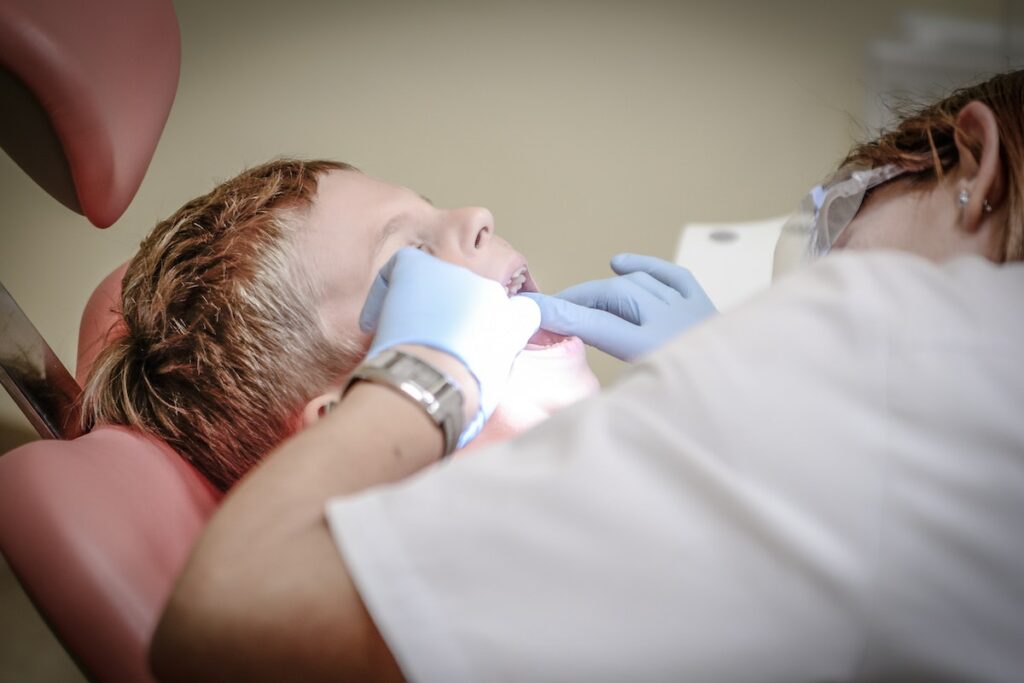- Dental phobia is an anxiety disorder that causes an intense fear of dental procedures, equipment, and dentists.
- Symptoms of dental phobia include sweating, rapid heart rate, nausea, panic attacks, and more.
- Avoiding routine checkups and delaying necessary treatments can lead to severe dental problems such as tooth decay, gum diseases, and tooth loss.
- Poor oral hygiene due to dental phobia can lead to bad breath, difficulty chewing, and painful eating.
- Dental phobia can also have financial implications in the long run, as it may require extensive treatments.
Dental phobia is a common condition that affects millions of people worldwide. An anxiety disorder causes intense fear and dread of dental procedures, equipment, and dentists. People usually delay necessary treatments, which can lead to more severe dental problems down the road. If you or someone you know has dental phobia, it’s essential to understand what it is and how to manage it effectively.
Symptoms of Dental Phobia
The symptoms of dental phobia can vary from mild to severe, including sweating, rapid heart rate, nausea, and panic attacks. Other signs of dental phobia include feeling tense and nervous, difficulty sleeping before a dental appointment, and the anticipation of pain.
The fear of specific dental procedures, such as injections or extractions, may also be a part of dental phobia. It’s crucial to recognize these symptoms early and discuss them with your dentist, so they can work with you to create a treatment plan that addresses your phobia’s underlying cause.
How Can It Affect Your Life?
Dental phobia can affect your life in various ways, aside from dental issues. Here are some of those ways:
Avoiding Dental Checkups
When you fear the dentist, you may go to various lengths to avoid routine checkups and exams. You may put off dental appointments for months or years, leading to severe dental problems. Untreated dental issues can cause tooth decay, gum disease, and tooth loss, impacting your overall health and well-being.

Poor Oral Hygiene
Dental phobia can lead to poor oral hygiene and dental problems. When you fear the dentist, you may avoid brushing your teeth regularly, flossing, or using mouthwash. Poor oral hygiene can cause gum diseases and other infections that could eventually cause tooth loss.
Difficulty Eating and Speaking
Having trouble eating or speaking due to dental issues can affect your confidence, self-esteem, and overall quality of life. Untreated dental issues such as cavities, gum diseases, and tooth decay can cause bad breath, difficulty chewing, and painful eating. People suffering from dental phobia often modify their diet to avoid certain foods that are hard to chew, leading to nutritional imbalances and related health issues.
Mental Health Implications
Dental phobia can be a source of serious anxiety and stress, leading to other mental health concerns such as depression and panic disorders. These conditions can significantly affect your daily life’s quality, making it difficult to manage work and personal life responsibilities.
Financial Implications
Avoiding the dentist can have significant financial implications in the long run. It can lead to compound dental issues that may require extensive and expensive treatments in the future. Keeping up with regular checkups is essential, as this can help catch dental issues early and avoid significant treatments and costs down the road.
Dealing With Dental Phobia
Thankfully, several strategies can help you manage dental phobia. The first step is to choose the right dental clinic.

Choosing the Right Dental Clinic
The dental clinic you choose can make all the difference. Look for a clinic that offers a relaxed and welcoming atmosphere where you can openly discuss your fears with the dentist and staff. A great dental clinic like Metro Dental will take the time to understand your needs, explain treatments in detail, and help ease your worries. They can also choose the right treatment options for you.
Cognitive Behavioral Therapy (CBT)
Cognitive Behavioral Therapy is an effective form of psychotherapy that can help you manage and reduce dental phobia symptoms. CBT works by helping you identify and change negative thought patterns and replace them with positive ones. It also teaches relaxation techniques to manage your fear in stressful situations, such as going to the dentist.
Distraction Techniques
Some people find that distraction techniques such as audiobooks, music, or podcasts can help manage dental phobia. Discussing these strategies with your dentist so they know what you will be doing during the procedure is essential.
Medication
In some cases, anti-anxiety drugs may be prescribed to reduce dental phobia symptoms. These should only be taken on the advice of a qualified medical professional.
Recognizing dental phobia symptoms early and talking to your dentist about them is essential. With the right approach, you can learn to manage and reduce this fear, allowing you to take better care of your oral health. If you or someone you know is struggling with dental phobia, contact the right dental clinic.



